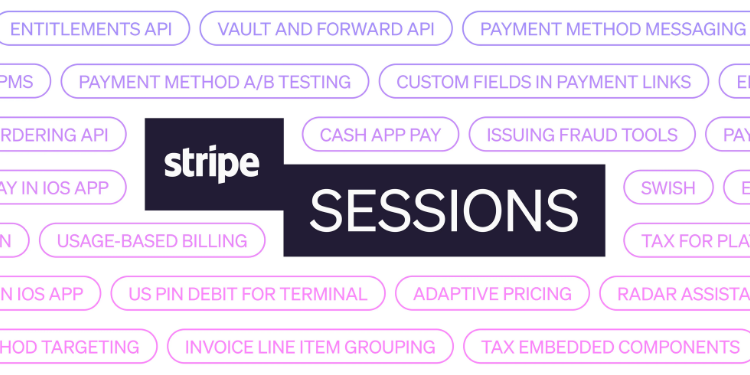Stripe made a splash at its annual user conference, Stripe Sessions, held at San Francisco’s Moscone Center, by announcing over 50 new features.
Last year alone, Stripe facilitated more than $1 trillion in payments for a diverse array of users, from burgeoning startups to corporate giants. The latest additions are designed to empower businesses and fuel their expansion efforts.
One of the standout features unveiled is Stripe’s Optimized Checkout Suite, a game-changer for companies like OpenAI, Slack, and River Island. Leveraging AI capabilities, this suite intelligently selects the most suitable payment methods for individual customers. Stripe has significantly expanded its supported payment methods from 50 to over 100, now including industry players like Amazon Pay, Revolut Pay, Swish, Twint, and Zip. Notably, businesses can now conduct no-code A/B tests for payment methods, a pioneering move exclusive to Stripe.
Patrick Collison, Stripe Co-founder and CEO said “Our mission is to grow the GDP of the internet. Our strategy is to listen carefully to the needs of the most sophisticated and innovative businesses in the world. This year, because of our scale, Stripe is well positioned to help our users deal with the increasingly complex payments landscape and put AI to work to drive growth. We’re also making Stripe more modular, so companies can use just the parts of Stripe most useful to them,”.
Data analysis indicates that businesses migrating to Stripe’s Optimized Checkout Suite experienced an average 11.9% boost in revenue, a testament to its efficacy in converting shoppers into buyers.
In a bid to combat fraud effectively, Stripe rolled out new AI-powered features, notably Radar Assistant. This tool allows businesses to describe new fraud rules using natural language prompts, with the assistant then drafting rules accordingly. These rules undergo rigorous testing against past payments to ensure they block fraud without generating false positives, thereby enhancing revenue protection.
Dave Hayne, Chief Technology Officer, URBN & President, Nuuly said “I view Stripe as a data platform as much as a payments provider. Our fraud prevention is more accurate because of Stripe’s data—and our customers check out faster because of Stripe’s data,”.
Stripe Connect, widely adopted by platforms like Shopify for seamless payment integration, received its most significant upgrades to date. With 17 embedded components, including 10 for payments, platforms can effortlessly integrate comprehensive financial services into their websites. For instance, the Stripe Capital embedded component enables platforms to offer loans to eligible customers directly from their site.
Kady Srinivasan, CMO of Lightspeed said “Building our payments products with Stripe has meant a better user experience for our customers, lower churn, and higher adoption,”.
Moreover, Stripe introduced numerous enhancements to its Revenue and Finance Automation suite, featuring full support for usage-based billing. Businesses can now track customer usage and translate it into precise charges, aligning revenue closely with service costs.
Daniela Amodei, President at Anthropic said “We count on Stripe for scaling our business so we can focus on innovating and serving our customers. For Claude Pro, we use Stripe Billing to manage subscriptions. For our API, we use Stripe Invoicing to make it easy to automate accounts receivable, collect payments, and reconcile transactions. This improves the experience for Anthropic and our customers alike,”.
Lastly, Stripe announced expanded availability of its core products—Optimized Checkout Suite, Stripe Billing, and Stripe Radar—to companies processing payments with other providers, a boon for enterprises with existing contractual commitments.
William Gaybrick, President, Product and Business at Stripe said “Today, we’re extending our modularity to the very core of Stripe: payments processing. Going forward, helping our users manage the complexity of running multiple processors will be a major investment area for us,”.
These developments underscore Stripe’s commitment to enhancing interoperability and fostering a broader partner ecosystem, aligning with its vision for a more open computing platform.



















































